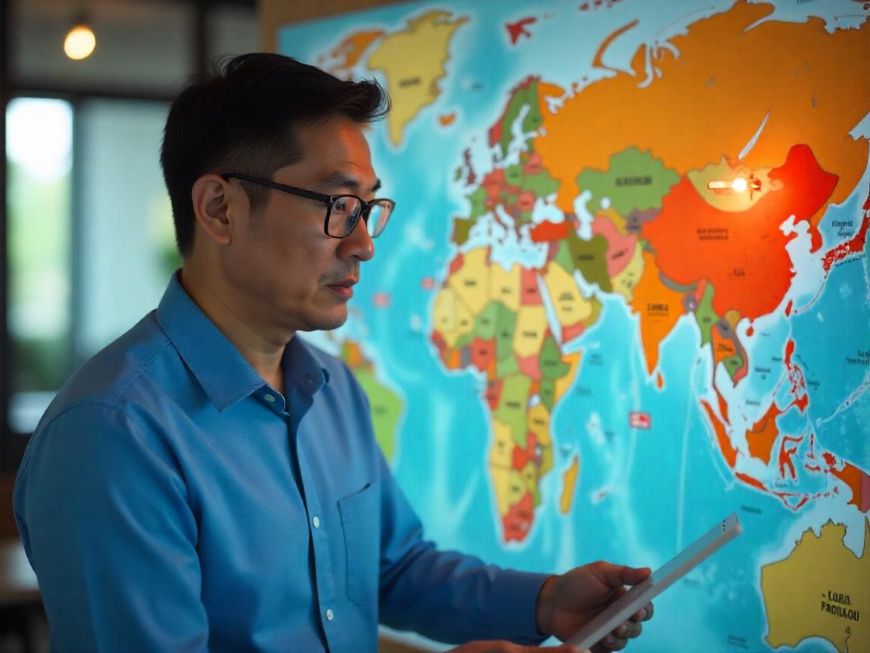Chris Koney's column: Turning the youth tide: Africa's urgent quest for jobs, dignity and opportunity
Africa is young. That is both its greatest asset and its most urgent challenge. In a continent where over 60 percent of the population is under the age of 25, the sheer scale of youthful energy is staggering.
But without jobs, opportunity and pathways to dignity, this demographic dividend can quickly become a destabilising liability.
Recent data from the International Labour Organization shows that youth unemployment in sub-Saharan Africa is nearing 14 percent, and that figure does not even capture the millions stuck in vulnerable, informal or subsistence jobs.
According to the IMF, 20 million jobs must be created annually to absorb new entrants into the labour force. This is a task daunting in scale but unavoidable in urgency.
This is not just a labour market issue. It is a development emergency. At stake is the very social fabric of Africa: whether we build inclusive economies that give our youth a stake in the future or risk fuelling cycles of poverty, disenfranchisement and even instability.
To reverse this tide, a tectonic shift is required in the way Africa thinks about employment and in the kind of support the continent receives from its partners. The focus must move from talk to transformation, from short-term projects to systems change.
At the heart of the problem lies a broken education to employment pipeline. The World Bank’s most recent Human Capital Index ranks many African countries poorly, showing that a child born today will only be 40 percent as productive as they could be with complete education and full health.
Education remains misaligned with labour market demands. Students graduate with degrees, but not necessarily with skills. Millions finish school unable to read, write or think critically. We are overproducing graduates and underproducing job-ready talent.
Solving this means bridging the gap between education and opportunity. Africa must retool its education systems, focusing on foundational learning and 21st-century skills, particularly digital literacy, creativity, entrepreneurship and critical thinking. Vocational and technical training must no longer be seen as second-best. It must be viewed as a frontline tool to build employability and unlock potential.
In parallel, the private sector must be brought in as a co-architect of Africa’s human capital transformation. Too often, education policy is developed in isolation from the market. Employers must be at the table, designing curricula, offering internships, mentoring young people and ensuring that skills taught are actually the skills needed.
But even the best training means little if economies are not growing. Youth employment is ultimately a function of economic structure. Africa needs more sectors that absorb labour, and in particular, those that can offer scalable opportunities for young people. Agriculture is one of them.
With 60 percent of the continent’s workforce engaged in farming, transforming agriculture into a dynamic, tech-enabled, value-adding sector can drive both food security and rural employment. Youth-led agri-tech start-ups, smart irrigation systems, drone monitoring and mobile extension services are already showing promise. But they need scale, investment and supportive ecosystems.
The digital economy also holds massive potential. With Africa being the fastest-growing region in Internet penetration, digital platforms can help young entrepreneurs bypass traditional barriers to entry.
E-commerce, Fintech, healthtech and edtech are not just buzzwords. They are job creators. But connectivity must be improved. Over 800 million Africans remain offline, and digital infrastructure is deeply unequal across regions. Without addressing the digital divide, the promise of the Fourth Industrial Revolution will remain elusive.
Green jobs present another frontier. As Africa adapts to climate change, sectors like renewable energy, sustainable construction, the circular economy and conservation can become engines of employment.
The green transition must be framed not just as an environmental necessity but as an economic opportunity. The African Development Bank has already invested in programmes like the Youth Entrepreneurship and Innovation Multi-Donor Trust Fund. However, such efforts must scale rapidly and reach more young people.
Africa cannot do this alone. International partners must rethink how they engage with Africa’s youth challenge. Development aid should shift from fragmented programmes to transformative systems investment.
For instance, rather than funding hundreds of micro-projects, donors could support sovereign job creation funds or youth infrastructure banks. These would be African-led vehicles that invest in education reform, entrepreneurial ecosystems and job-intensive sectors.
Europe, in particular, must see African youth not as a migration risk to be managed but as a strategic opportunity to be nurtured. The European Union’s Global Gateway strategy must be recalibrated with employment at its core. Trade agreements should facilitate market access for African digital goods and services, not just raw materials.
The role of African governments is paramount. No amount of foreign aid can substitute for political will. Governments must create enabling environments. They need to invest in public goods, reduce red tape, fight corruption and trust their youth with power, capital and voice. Policy predictability, rule of law and an ecosystem that rewards initiative are essential for progress.
Above all, Africa must believe in its youth. Too often, young people are talked about but not listened to. They are recipients of development, not its architects. That must change. Youth must be at the centre of policy-making, not as tokens on advisory boards but as decision-makers and implementers.
What Africa faces is not a jobs crisis. It is an imagination crisis. Can we reimagine education, entrepreneurship, employment and equity? Can we unlock the energy of one billion minds for prosperity and peace? Can we build economies where young people see a future worth staying for? The answer must be yes. But only if we act now, boldly, urgently and together. Because a continent that is young, if invested in, is a continent that can lead.

Post Views: 238








